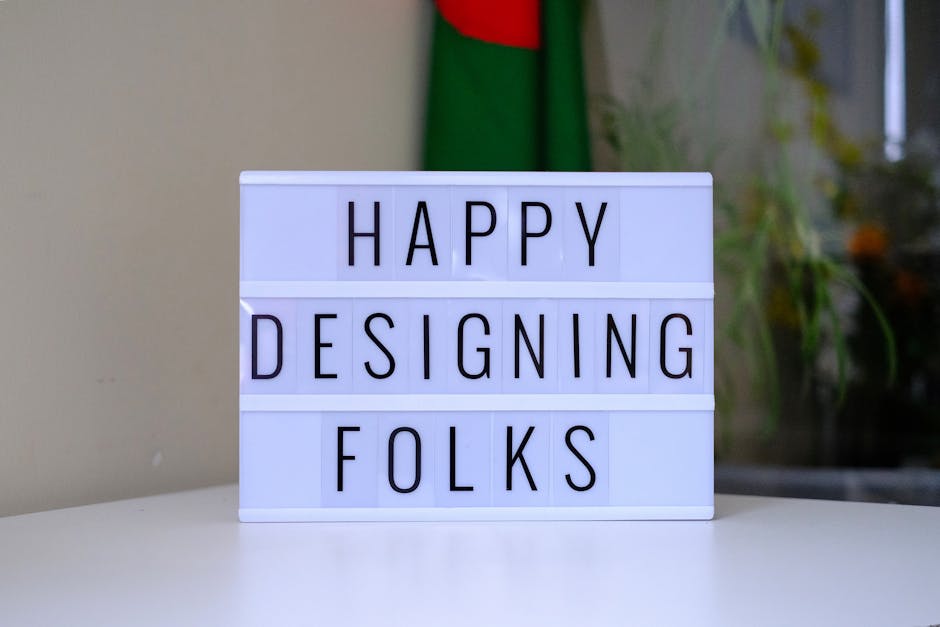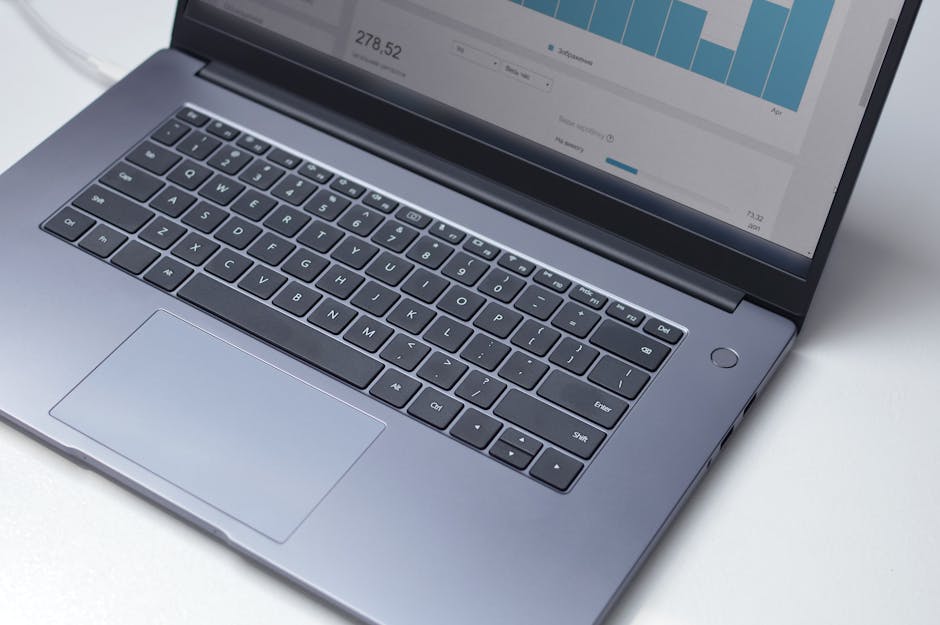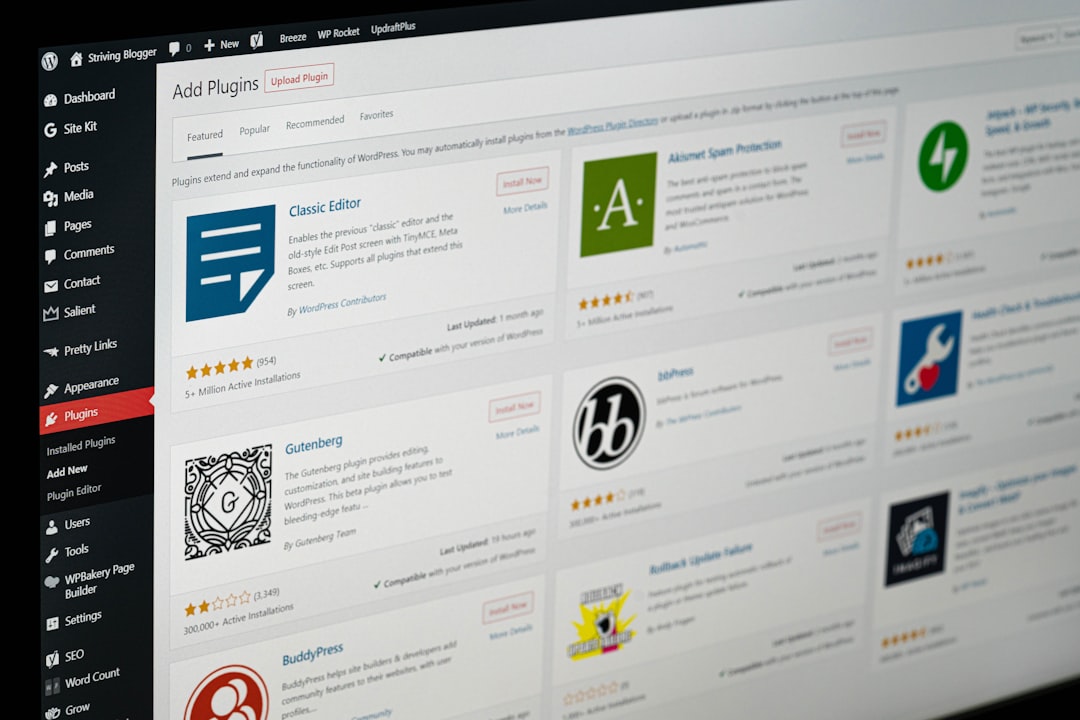Digital Excellence, Small Business Impact
A small business’s website is often the first impression customers have. Believe it or not, about a third of people find local businesses through the internet. If you’re a small business owner looking to stand out, focusing on your website’s design is key.
Key Points for Quick Insight:
– Clear and easy navigation
– Well-written content
– Strategic use of color and typography
– Responsive design for mobile users
Your small business website doesn’t require a massive budget or a design degree to be effective. The goal is simplicity and clarity over complexity and clutter.
Having a website that’s intuitive for users and tells your brand’s story can significantly boost your visibility and credibility. It’s about creating a digital space where customers feel welcomed, informed, and ready to engage with your business.

Key Features of Outstanding Small Business Websites
When it comes to the best small business website design, certain features can make or break your online presence. Let’s dive into the essentials that set the top-performing websites apart.
User-friendly Interface
First off, a user-friendly interface is non-negotiable. Your website should be easy to navigate, making it simple for visitors to find what they’re looking for without frustration. Think of it like a well-organized store where everything is within reach.
Customization Options
Next up, customization options play a critical role. Your website is the digital face of your business, so it needs to reflect your unique brand identity. Whether it’s through colors, layouts, or features, being able to tailor your site to your vision is key.
Ecommerce Capabilities
For businesses selling online, ecommerce capabilities are a must. This includes everything from a secure shopping cart to easy product management. It’s like having a 24/7 store where customers can shop in their pajamas if they wish.
Responsiveness
Responsiveness is another crucial feature. With more people using smartphones and tablets to browse the internet, your site must look good on any device. It’s like having a shop that can magically resize itself to fit wherever it’s placed.
SEO Tools
Lastly, SEO tools are essential for getting your site seen by more people. These tools help your website rank higher in search engine results, making it easier for potential customers to find you. Think of it as the difference between a store hidden in a back alley and one right on Main Street.
In conclusion, the best small business website design combines a user-friendly interface, customization options, ecommerce capabilities, responsiveness, and SEO tools. These features ensure that your site not only looks great but also functions well, attracts more visitors, and ultimately, helps your business grow.
Keep these key features in mind. They are the foundation upon which successful small business websites are built, setting the stage for the inspiring examples we’ll explore next.
Best Website Builders for Small Businesses
Choosing the best small business website design platform is like picking the right tool for a job. It can make the difference between a site that’s a bustling hub for your business or one that sits quietly in a corner of the internet. Let’s dive into some of the top website builders that can help small businesses shine online.
Self-Hosted WordPress: The Flexible Giant
Self-Hosted WordPress is the Swiss Army knife of website builders. It’s free, open-source, and powers about 43% of all websites on the internet. What makes WordPress stand out is its flexibility and scalability. With thousands of themes and plugins, you can create anything from a simple blog to a full-fledged e-commerce site. However, keep in mind that it might require a bit more technical know-how, especially for keeping your site updated and secure.
Hostinger Website Builder: AI to the Rescue

Hostinger Website Builder, previously known as Zyro, is your AI-powered sidekick. It’s designed to quickly get a professional-looking site off the ground by answering a few simple questions. This builder is especially appealing for those who value speed and simplicity, and its e-commerce tools make it a good choice for online stores.
HubSpot Website Builder: Marketing Magic

HubSpot Website Builder is more than just a website builder; it’s a marketing powerhouse. With its CRM integration, you can offer a personalized experience for every visitor, and its adaptive testing optimizes your site’s performance. It’s ideal for those who want to marry their website with strong inbound marketing strategies.
Wix: The User-Friendly Contender
Wix is known for its ease of use, thanks to a drag-and-drop interface that makes web design as simple as pie. It’s packed with features and templates suited for various industries. Wix’s ADI feature can even build a site for you based on your business info. It’s a strong option for those who want a good-looking site without the hassle.
Web.com: For the Beginners

Web.com is your go-to if you’re starting from scratch. It’s one of the best small business website design options for beginners, offering a straightforward building process. While it might not have the bells and whistles of other builders, it gets the job done.
GoDaddy Website Builder: Quick and Simple

GoDaddy Website Builder focuses on simplicity and speed. It’s perfect for creating basic sites without needing a deep dive into design or coding. Its mobile editing capabilities ensure your site looks good on any device.
Gator Website Builder: Budget-Friendly Building

Gator by HostGator is where affordability meets functionality. It offers a no-frills approach to website building, with all the essential features a small business might need, including e-commerce capabilities. It’s a solid choice for those watching their budget.
MemberPress: Membership Sites Made Easy
MemberPress shines when it comes to creating membership sites. If your business model involves subscriptions or restricted content, MemberPress offers a straightforward way to manage it all within WordPress.
Weebly: Best Freemium Model

Weebly strikes a balance between functionality and cost, with a generous free plan and easy-to-use interface. It’s particularly good for basic e-commerce sites, thanks to its integration with Square.
BigCommerce: E-commerce Excellence

BigCommerce is the heavyweight champion of e-commerce website builders. Designed for online stores that need to scale, it offers robust sales tools and integrations with various platforms.
Squarespace: Design-First Approach
Squarespace is the go-to for beautifully designed sites. With a focus on modern, clean templates, it’s ideal for creatives and anyone looking to make a visual impact. Its e-commerce capabilities are also top-notch, making it a great all-rounder.
Each of these website builders offers something unique, catering to different needs and skill levels. Whether you’re looking for the flexibility of WordPress, the simplicity of Wix, or the e-commerce prowess of BigCommerce, there’s a tool out there that’s perfect for your small business. The best small business website design platform is the one that aligns with your business goals, skills, and budget. Choose wisely, and you’ll set the foundation for your digital success.
Cost Considerations for Small Business Websites
When diving into best small business website design, it’s crucial to understand the financial aspect. Let’s break down the costs associated with different types of websites: Small Business Website, Corporate Website, E-commerce Website, and Website Application.
Web Design Costs
First, know this: quality web design isn’t cheap, but it doesn’t have to break the bank either. The cost of designing a website can vary widely, based on your needs and the platform you choose. For instance, using a website builder like Wix or Squarespace can significantly reduce costs, as they offer a wide range of templates that are easy to customize without any coding knowledge.
Small Business Website
For a basic small business website, you’re looking at costs ranging from $2,000 to $9,000. This includes a homepage, about page, contact page, and a few additional pages detailing your services or products. The goal here is to create a user-friendly site that effectively communicates your brand and offerings.
Corporate Website
On the other hand, a corporate website might require a larger investment, due to its complexity and the need for additional features like a comprehensive blog, multi-language support, and intricate design elements. Prices can range from $10,000 to $30,000. It’s a significant jump, but for a growing business, the investment in a professional and polished online presence can pay dividends.
E-commerce Website
E-commerce websites are in a league of their own. They not only need to look good but also function seamlessly to handle transactions, inventory management, and customer data securely. Depending on the scale, you might be looking at costs between $5,000 to $40,000. Platforms like Shopify or BigCommerce offer various plans that can help mitigate these costs while providing robust e-commerce solutions.
Website Application
Lastly, if your business requires a website application with custom functionalities (think online booking systems, interactive tools, or membership portals), the costs can start at $15,000 and go up significantly from there. The complexity of the project dictates the final price.
Understanding these cost considerations is key to planning your digital strategy effectively. It’s not just about finding the cheapest option but investing in a solution that will serve your business goals and grow with you. Whether it’s the simplicity and affordability
of a basic brochure site or the robust features of an e-commerce platform, the right investment can transform your online presence. Now, let’s explore some inspiring examples of small business website design that have mastered the art of digital excellence.
Inspiring Examples of Small Business Website Design
When it comes to the best small business website design, it’s all about creating an engaging user experience that captures the essence of the brand. Let’s dive into some real-world examples that stand out in the digital landscape:
-
Bennett Tea: This site uses vibrant color palettes and animated transitions to create an immersive experience. It breaks the mold by allowing users to scroll through tea offerings, beautifully blending storytelling with shopping.
-
Aroz Jewelry: With a full-width image greeting visitors and a grid slider showcasing products, Aroz Jewelry’s website combines elegance with functionality. The use of animations adds a layer of sophistication, making it a standout example of e-commerce done right.
-
Chicago French Press: Highlighting the product through aesthetically pleasing packaging and color-coded backgrounds, this website makes shopping for coffee an enjoyable experience. It’s a testament to how visual appeal can enhance product discovery.
-
Wildwood Bakery: This Australian bakery’s website features delicate illustrations and a warm color scheme, proving that simplicity can be incredibly effective. The custom cart icon and prominent footer underscore the bakery’s commitment to detail and sustainability.
-
AÃRK Collective: Presenting watches in a gallery-like format, AÃRK Collective’s website emphasizes the beauty of minimalism. The focus on product images against a clean backdrop allows the designs to shine, offering a seamless shopping experience.
-
Cleenland: This low-waste store’s website is a lesson in functionality and clarity. By directly inviting visitors to visit the physical location and showcasing products with sustainable sourcing, Cleenland communicates its values effectively.
-
Ladies Get Paid: Offering a variety of resources for financial and professional growth, Ladies Get Paid uses a clear layout and hints of color to make navigation intuitive. It’s an excellent example of how to present a wealth of information in an accessible way.
-
Good Vibes All Purpose Cleaner: With a straightforward design that focuses on product benefits and customer testimonials, Good Vibes demonstrates the power of simplicity in e-commerce.
-
Wisr: This website builder example shows that with the right tools, creating an engaging online presence is within reach for any small business.
-
Cafe con Libros: Blending the charm of a local café with the convenience of online shopping, this site invites visitors to explore its offerings in a welcoming environment.
-
Reform Collective: As a platform for artisans, Reform Collective’s website balances creativity with user experience, making it easy to discover and support independent creators.
-
Sweet Dreams: This sleep solutions provider uses calming colors and clear navigation to guide visitors through its product range, emphasizing the importance of a good night’s sleep.
-
Panache: A vibrant and dynamic website that showcases the fashion brand’s unique style and collection, encouraging visitors to explore and shop.
-
Scott’s Cheap Flights: By focusing on deals and travel tips, this website turns the search for affordable flights into an adventure, proving that practicality can also be engaging.
-
Music Audience Exchange: Catering to both artists and brands, this website uses a professional layout and step-by-step guides to facilitate partnerships, showcasing the potential of niche markets.
These examples illustrate that the best small business website design doesn’t rely on extravagant budgets or complex features. Instead, success is achieved through clear navigation, compelling visuals, and a strong brand narrative. Whether you’re selling products, offering services, or building a community, these sites prove that with the right approach, small businesses can create a powerful online presence.
Frequently Asked Questions about Small Business Websites
What’s the best website builder for a small business?
When it comes to picking the best website builder for a small business, the choice often boils down to three main contenders: Wix, Squarespace, and Shopify. Each platform has its strengths:
- Wix is celebrated for its drag-and-drop interface that makes website design as easy as pie. It’s ideal for businesses that want a unique website without needing to code.
- Squarespace shines with its stunning, professionally-designed templates. It’s perfect for businesses that prioritize aesthetics, such as design studios or galleries.
- Shopify is the go-to for e-commerce. It offers powerful tools to sell online, making it a great choice for retail businesses looking to expand their digital footprint.
How much does a small business website cost?
Creating a website for your small business can cost anywhere from $2,000 to $9,000. This range accounts for various factors, including design complexity, functionality, and whether you’re doing it yourself or hiring a designer. Investing in your website is investing in your business’s future. A well-designed site can significantly boost your brand and attract more customers.
Is Wix good for a small business?
Absolutely, Wix is an excellent choice for small businesses seeking code-free customizations. Its intuitive design tools and vast library of templates make it easy for anyone to create a professional-looking website. Plus, Wix offers a range of features tailored to businesses, such as online booking systems, e-commerce capabilities, and email marketing tools. It’s a versatile platform that can adapt to your business’s growing needs.
In conclusion, building a small business website doesn’t have to be daunting. With platforms like Wix, Squarespace, and Shopify, you have powerful tools at your fingertips to create a site that not only looks great but also drives business growth. The key is to choose a platform that aligns with your business goals, budget, and technical comfort level.
Conclusion
In digital excellence, where every pixel matters and every click counts, the quest for the best small business website design can seem like a Herculean task. However, it’s not just about having a visually appealing site; it’s about creating a digital footprint that resonates with your audience, drives engagement, and converts visitors into loyal customers. This is where Randy Speckman Design emerges as not just a service provider but as a partner in your journey towards digital success.
Randy Speckman Design has been at the forefront of transforming small business websites from mere online brochures to powerful sales engines since 2006. With a deep understanding that the digital landscape is changing, Randy Speckman took a pivotal turn in 2015 to revamp his approach towards website development. This shift was not just about keeping up with trends but about pioneering a process that focuses on the science behind successful websites. The result? Beautifully designed, easy-to-use websites that don’t just attract visitors but convert them into happy, loyal customers.
What sets Randy Speckman Design apart is its commitment to affordability without compromising on quality. Understanding the financial constraints small businesses often face, Randy Speckman developed a process in 2016 that automates and grows your business without breaking the bank. This approach has not only saved thousands for clients on website development but also on ongoing website costs.
But don’t just take our word for it. The proof is in the pudding, or in this case, the over 500 companies and brands worldwide that have trusted Randy Speckman Design with their digital presence. From designing thousands of websites to crafting email campaigns and sales ads, Randy Speckman’s passion for helping small businesses shine online is evident in every project.
As we’ve explored various platforms like Wix, Squarespace, and Shopify, it’s clear that having the right tools is crucial. However, what truly makes a difference is having a partner who understands the intricacies of digital marketing and website design. Randy Speckman Design is that partner. With a focus on not just meeting but exceeding client expectations, Randy Speckman Design is dedicated to helping you conquer the internet, one pixel at a time.
For those ready to embark on a journey towards digital excellence, Randy Speckman Design offers a suite of services tailored to the unique needs of small businesses. From web design to hosting and marketing, every aspect of your digital presence is covered.
Embark on your journey towards digital success and discover how Randy Speckman Design can transform your small business website into a powerful tool for growth. Learn more about our services and how we can help you achieve online excellence. Explore our services.
In conclusion, the quest for the best small business website design doesn’t have to be a solo venture. With Randy Speckman Design by your side, you’re not just building a website; you’re crafting a digital experience that captivates, converts, and champions your brand. Let’s create something amazing together.








